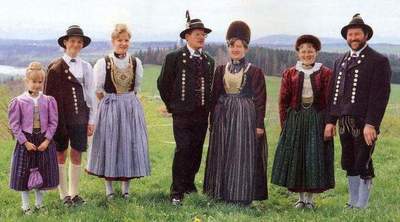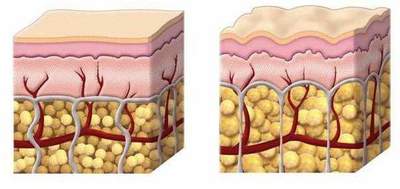The history of the eggs as the dish
• The history of egg dishes like

The power of modern human eggs occupy a special place. This is one of the most quick and simple of prepared dishes. However, in the past, the attitude towards them was by no means the same. But in the Russian national cuisine is really to cook an egg as a separate dish began a few centuries ago. And eggs has long been a festive dish. As the food materials to blend with other products of the eggs were not perceived. Even the dough they were consumed only in the XIX century, following the example of the French.
How can that be, and why? After all, chickens for a long time been in the farm and the eggs they carried always correctly.
Let's understand this ...
XVII century "chicken" can be called law in Europe. Disabled 100 more breeds of chickens culture. In Russia, the breeding work will begin only in the XVIII century. Prior to this, on farms chickens swept regularly, and the egg was less modern almost doubled. To prepare relatively nutritious food, it required at least two dozen eggs.
In Russian, and indeed among the ancient peoples of the East Slavic egg appears in almost every spring rite. So, for the first time after the winter, driving a herd of grazing, the shepherds necessarily took with them the eggs, hoping that their cows become as kruglobokimi and give a good issue.
Belarusians have a similar rite is being heralded in another way: the owners holding the icon of the hands, bread and candles, cattle avoided, and at the gate through which he drove, they laid the egg and coat the stele up fur. On the ascension - it celebrated on the fortieth day after Easter colored eggs carried into the field and threw up. This was done in order to rye grown as high.
The central place was given to the egg in the Easter rites. The eggs are consecrated in the church of "Easter greetings", carried on the graves of deceased parents and relatives. Young people at the holy week eggs amused riding on a specially made wooden trays with mud slides.
It was accepted as "beat" eggs: whose egg will crack, and he lost. Some boys have achieved such skill in this matter, that the day is sometimes won over the whole basket of eggs.

In some provinces, the peasants on the first day of Easter put on the table a little kad with wheat grains and buried them in a red Easter egg. Then, these grains seeded field.
Custom painted Easter eggs in red is rooted in pagan times, when red egg was considered a symbol of the sun, nature awakens after the long winter. Bright as the resurrection of Christ coincided with the pagan spring festival.
There just did not make drawings on Easter eggs, they were called pysankas. There were a variety of methods for their preparation (usually engaged in this woman).
The most common ritual dish of eggs has always been considered the Slavs eggs. She fed the young at the wedding, at the three girls were treated. Shepherds necessarily cooked scrambled eggs for dinner on the first day of pasture grazing.
In general, the eggs are not considered real, serious food. Egg rather perceived as self-indulgence, it is permissible except for small children so coddled idle gentlemen. It was too small in size it is, and as considered peasants, nothing good can not be made from eggs. In addition, eggs are classified as "-fasting" food and so on fasting days were excluded from the menu. Especially a lot of them accumulate in Lent. Maybe this explains the custom of giving Easter eggs painted by relatives and friends.

For a long time, it was not accepted in Russian cuisine mix eggs with other products. However, over time, mainly under the influence of French cuisine, a range of dishes using eggs expanded.
First of all, they were added to the dough for pies, pancakes, noodles and other flour products, widely used omelets, casserole with eggs, etc. Yes, and old fried tested has changed:.. Ennobled meat and vegetable additives, sauces.
At the end of the XIX century fashionable, especially among singers - amateur, he was the so-called Gogol - Mogol. Prepare it from chilled chicken egg yolks, whipped with sugar. To this mixture was further added rum, sherry or Madeira. It was believed that this dish "cleans" the voice before singing.
Lack of a fragile "egg" product Russia has never experienced. It has long been in the north and south of the country, in Siberia, in places of bird colonies, collected birds' eggs in the spring in large quantities.
However, already in those days we understood that such predatory fish leads to a reduction in wildfowl. There were even laws forbidding plunder nests and take away from their eggs. Caught the thieves behind this affair waited arrest for three days. The most suitable to eat eggs were considered.

It is believed that the first cultural breed of chickens in our country has become a Pavlovian deduced by the middle of the XVIII century. In any case, it was her mention Peter Simon Pallas in their descriptions of Russia. Her egg production was 150-170 eggs per year, and the mass of eggs - about 50 grams. The cookbook "Old Russian hostess, housekeeper and cook," dated 1790, there is only one mention of this product: "Eggs to keep fresh. Fill their butter, where they will stay for almost a year so fresh as if is now demolished. The oil is then may be administered after the * Th at the hut. "

At the beginning of the XIX century at the court of Emperor Alexander I was invited by a famous French chef Marie-Antoine Careme. The first thing that surprised foreign chef - poached egg.
Cooked without shell in boiling water, the egg turned out air and gentle on the palate. And if in France the dish was on duty breakfast, then to the Russian nobility poached egg was a treat.
However, in the first quarter of the XIX century, the elegant egg dishes were gourmet privilege. For ordinary people the situation changed when, during the war of 1812 and the subsequent foreign campaigns of the Russian army of tens of thousands of Russians have the opportunity to try out what Europeans eat. The peasant cottages, apartments and houses in poorer citizens more often began to prepare various options for fried eggs and omelettes.
Russia was one of the world's largest suppliers of the world market. So, I reached 2, 8 billion units in 1903, the export of these products. But the quality of Russian eggs did not cause much excitement among foreign buyers. There are several reasons.
Chickens fed mostly garbage. It not organized and collecting eggs. He came often by accident. Hawkers sometimes fine product gave eggs, and they carried them on bumpy Russian roads and, of course, a little loose. Egg quality is deteriorating, and it is valued very low. The peak of popularity of dishes from eggs in our country took place in the Soviet period. In the 1930s, there is even a Soviet term - "egg-Ptichnoye industry." During the first five 171 two ptitseotkormochnoe enterprise 191 slaughterhouse, mottled 17 and 41 were constructed culinary shop. It has been restored and converted yaytsesushilny Voronezh plant that produces egg powder, organized about 30 bird farms.

The Mikoyan "Book of Tasty and Healthy Food" (1939) the egg called a unique product, rich in protein and amino acids. Egg dishes have become a favorite breakfast of the Soviet people. But that all changed with the onset of the Great Patriotic War. Chicken eggs were one of the first products that have disappeared from the shelves then. A lot of people used to cook in the morning scrambled eggs or an omelet, have been deprived of the usual product. However, the yield was soon found. In coming since 1942 under the Lend-Lease American aid was a place and egg powder - this ersatz replacement suddenly become a delicacy eggs.
At first people were suspicious of the product of this industrial cooking. But the Soviet authorities did not let the process take its course. One after another in "Pravda" and other newspapers published articles about the benefits of egg powder. It became apparent that the new product has all the useful qualities known to mankind. A natural eggs, in contrast, are harmful, they contain harmful bacteria and weaken the body fats.
But everything comes to an end. Ended and military difficulties. Already in the mid-1950s, the eggs appear on the shelves of more and more often. But the people, intimidated with stories about their harmfulness, the first time bypassed the shelf side. And I must say that the Lend-Lease to the time ran out long ago, and all the supplies reached the end of the powder. It was then the Soviet press and the command was given to "turn back". "Organic eggs are very useful and nutritious" - the thought suddenly occurred to their editors and journalists.

It is said that, after reading one of the first of these articles, the outstanding actress Faina Ranevskaya phoned friends and happily exclaimed: "Congratulations, my dear! Eggs rehabilitated! "
"Harmful" eggs - rather, a fiction. It has long been proven that cholesterol contained in eggs, lecithin is neutralized and not deposited in the body in the form of plaques. There eggs are not only not harmful, but also useful - they contain a large amount of amino acids. Just as with any product, you need to know when to stop: no more than two eggs a day.













































